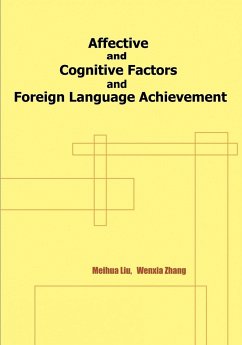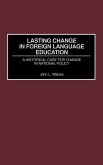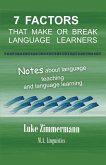This study explores the field of EFL (English as a foreign language) classroom learning within three formal learning institutions in Beijing. Via questionnaires and reflective journals, this book examines various aspects of Chinese EFL learners' anxiety, motivation, English-learning and test-taking strategy use, and the interactive effect of these variables on their achievements in English: manifestations, general patterns, differences in terms of gender, proficiency level and learning contexts, coping strategies and so on. Complicated statistical analyses, coupled with content thematic analyses, reveal that (1) around a third of the respondents experienced anxiety in English class; (2) the respondents were (highly) motivated both instrumentally and integratively to learn English, and were generally more instrumentally than integratively motivated; (3) the participants had a medium use of English learning and test-taking strategies; (4) among the six categories of English-learning strategies, compensation and memory strategies were the most and least frequently used respectively; while mixed findings were revealed about the use of the six categories of English test-taking strategies; (5) significant differences existed in most of the measured variables among the samples from different universities and among those at different proficiency levels; (6) mixed findings were found concerning gender differences in the measured variables; (7) the measured variables generally significantly correlated with one another and the students' performance in English; and (8) the SEM results of the four samples were generally similar, however, some striking differences existed due to certain reasons.
Hinweis: Dieser Artikel kann nur an eine deutsche Lieferadresse ausgeliefert werden.
Hinweis: Dieser Artikel kann nur an eine deutsche Lieferadresse ausgeliefert werden.








